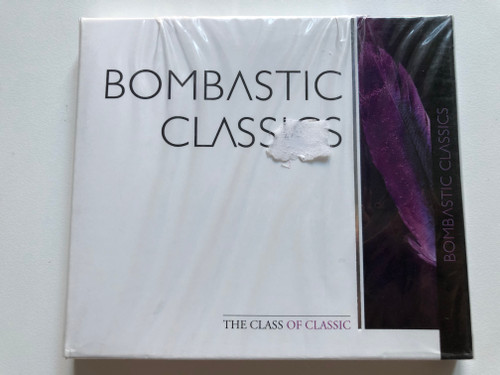Product Overview
Various - Romance I / Weton-Wesgram CD Audio 2005
UPC 8717423014171
Made in EU
Frédéric François Chopin (born Fryderyk Franciszek Chopin; 1 March 1810 – 17 October 1849) was a Polish composer and virtuoso pianist of the Romantic period who wrote primarily for solo piano. He has maintained worldwide renown as a leading musician of his era, one whose "poetic genius was based on a professional technique that was without equal in his generation."
(Achille) Claude Debussy (French: [aʃil klod dəbysi]; 22 August 1862 – 25 March 1918) was a French composer. He is sometimes seen as the first Impressionist composer, although he vigorously rejected the term. He was among the most influential composers of the late 19th and early 20th centuries.
Tracklist:
1. Chopin - Etude in C sharp minor Op.25, No.7 (Dieter Goldman, piano)
2. Debussy - Prélude à l'après-midi d'un faune (Late afternoon faun) (South German Philharmonic, conducted by Hans Peter Gmür)
3. Offenbach - The tales of Hoffmann - Barcarole (Royal Philharmonic Orchestra London, conducted by Frank Shipway)
4. Mozart - Symphony No.3 l in D major, 'Paris' K297 Andantino (Mozart Festival Orchestra, conducted by Alberto Lizzio)
5. Tchaikovsky - 'The Sleeping Beauty' Ballet, Op.66 Pas 'Action (The New Philharmonic Orchestra, conducted by Alfred Scholz)
6. Sibelius - Valse triste, Op.44(London Festival Orchestra, conducted by Alfred Scholz)
7. Brahms - Pieces for piano, Op.| 17, No. l 'Intermezzo' in E flat major (Dieter Goldman, piano)
8. Liszt Rustling in the Forest (Dieter Goldman, piano)
9. Mendelssohn - A Midsummer Night's Dream Op.6, No.7 - Nocturne (South German Philharmonic, conducted by Alexander von Pitamic)
10. Bizet - Symphony No. I in C major - Adagio (Camerata Romana, conducted by Alfred Scholz)
11. Haydn - Symphony No.5 'For King Ferdinand IV of Naples' Finale (Camerata Romana, conducted by Alberto Lizzio)
12. Dvorak - Serenade in E major for String Orchestra Op.22 - Larghetto (Philharmonia Slavonica, conducted by Henry Adolph)
Total Playing Time: 68:02














